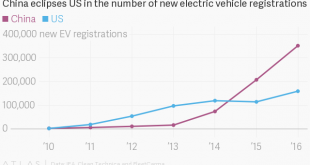But few are focusing on the real measurable — not what it will cost economically to address the problem, but what it will cost economically to not address the problem. "Cost economically" here means exactly and only what the people at Forbes and Bloomberg think it means — How does economic activity slow when atmospheric temperature rises? How are profits and wealth affected? This analysis looks at no other factors affecting the economy, such as the cost of recovery from super-storms. One...
Read More »Robert Hockett — Green New Deal Funding: Remember Finance is a Public-Private Franchise, Not a Big Broker in the Sky
Not MMT but worth reading. Robert Hockett is an advisor to AOC. ForbesGreen New Deal Funding: Remember Finance is a Public-Private Franchise, Not a Big Broker in the SkyRobert Hockett | Edward Cornell Professor of Law, Cornell University See also Bloomberg OpinionHow to Design a Green New Deal That Isn’t Over the Top Noah Smith
Read More »The Black Bill and the Green New Deal
“When we first came to Washington in 1933,” FDR Labor Secretary Francis Perkins wrote in her memoir, The Roosevelt I Knew, “the Black bill was already before the Congress. Introduced by Senator Hugo L. Black, it had received support from many parts of the country and from many representatives and senators.” The Black Bill was the Senate version of the Black-Connery Thirty-Hour Bill. On April 6, 1933, the Senate approved the measure by a vote of 53 to 30....
Read More »Richard Murphy — The ‘economists’ have lost control of climate change
The neoliberal economists, that is. There is no "market solution" to existential threats that require mobilization of real resources to meet the emergent challenge.Tax Research UKThe ‘economists’ have lost control of climate change Richard MurphySee alsoAlex Tabarrok is aware that addressing climate change is a global effort, which some people in the US apparently overlook or minimize. A US GND would be a step in the right direction, but it is not the solution.A single country, even the US...
Read More »Dominique Mosbergen — Insects Are Dying En Masse, Risking ‘Catastrophic’ Collapse Of Earth’s Ecosystems
The insect apocalypse is indeed upon us, according to the first global scientific review of insect population decline. Another bad omen?Huff PostInsects Are Dying En Masse, Risking ‘Catastrophic’ Collapse Of Earth’s EcosystemsDominique Mosbergen
Read More »The Nobel Economists Petitiion on Carbon Tax And Dividend Plan
The Nobel Economists Petitiion on Carbon Tax And Dividend Plan As many now know, a large group of prominent economists, led by a large group of Nobel Prize winners, has published a petition in the Wall Street Journal. This petition declares the idea of putting a tax on carbon and then returning the receipts from it to the population on an even per capita basis to be the best and most efficient plan for dealing with global warming. This group continues...
Read More »Economic Growth and Climate Change: Mistaking an Output Variable for an Instrument
Economic Growth and Climate Change: Mistaking an Output Variable for an Instrument When I first started arguing against the degrowthers, I thought they were a small, uninfluential fringe, important only because they had a sway over a portion of the left—what we might call the Naomi Klein left. That was then. Today degrowth is entering the mainstream, as can be seen by the latest David Roberts piece in Vox. Roberts reviews a discussion between several...
Read More »China Is Selling More EVs Than the US
Cars: The electric car is becoming prominent China. China registered as many as 352,000 new electric vehicles (EV) in 2016 compared to 159,000 cars registered in the US during the same time period and mostly in California. Automotive analysts suggest China’s numbers could be inflated due to subsidy cheating: but, even the lower estimates remain higher than the US. Navigant Consulting puts China’s 2016 figure at an approximate 250,000, but, it expects new...
Read More »On the Front Lines of Climate Change: Old White Homeowners, Many of them Upper Class
On the Front Lines of Climate Change: Old White Homeowners, Many of them Upper Class The other night I was sitting at home, locked in a conversation about climate change and race. How is this a racial issue, I asked? I realize that the society I live in has pervasive racism, and one should always keep this in mind, but how specifically is climate change worse for nonwhites? Well, it’s all about first and worst impacts, I was told. People of color are...
Read More »Arctic Report Card
Via NPR on the Arctic: The Arctic has experienced the “most unprecedented transition in history” in terms of warming temperatures and melting ice, and those changes may be the cause of extreme weather around the globe, according to the National Oceanic and Atmospheric Administration’s 2018 Arctic Report Card. The annual report released Tuesday says rapid warming over the past three decades has led to a 95 percent decline of the Arctic’s oldest and...
Read More » Heterodox
Heterodox

